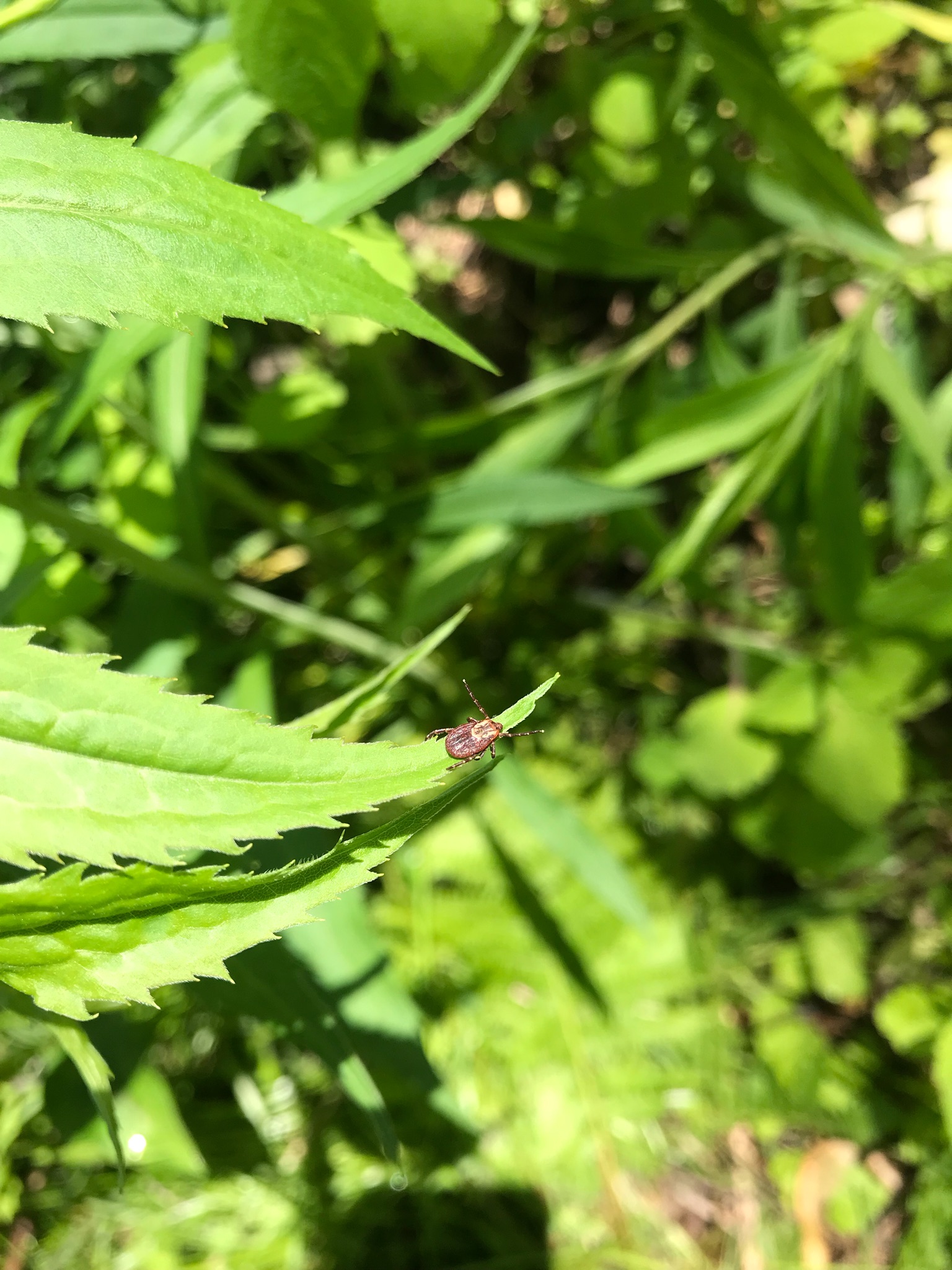Every year about 476,000 people in the US are diagnosed and treated for Lyme disease, though the Center for Disease Control and Prevention suggests this number may be overestimated due to those treated for a tick bite before a confirmed infection. If a tick is found on a person or an animal, it is important to get the tick tested to know if the tick had any pathogens that could have been transmitted to the host, and if they would need to go to a physician or veterinarian to get treated for that tick-borne illness.
Since 2016, there has been a chewable tablet for dogs that will kill the tick upon the bite. A similar product may be available to humans in the near future. Today’s tick prevention practices involve wearing long, light-colored clothing to quickly spot crawling ticks, applying chemical repellents, and avoiding tall grass during active tick seasons. Despite continued public health awareness efforts and an expanding shelf of consumer repellents, the rate of tick-borne illnesses has doubled since 2000.
In California, Tarsus Pharmaceuticals has been testing a pill that is a formulation of lotilaner, also known as TP-05 which would paralyze and kill a tick by interfering with the way that signals are passed through the tick’s nerve cells. This medicine will work as soon as the tick starts sucking on the blood of the host.
“TP-05 is a tablet designed to prevent Lyme disease by killing ticks before ticks can infect us,” CEO Dr. Bobby Azamian clarified.
Tarsus first developed lotilaner in July 2023, as an eye drop for humans to treat Demodex blepharitis, which is an inflammation of the eyelid caused by tiny mites. This treatment is called Xdemvy and it would stun the tiny mites that were on the eyelid. Lotilaner was also used to control fleas on cats and dogs. Azamian and his team presented the idea to test lotilaner on people to stop the transmission of diseases by ticks.
Phase II trial was held in Boston, where they gave 31 healthy adults the pill. Some patients were given a high dose, some a low dose, and some a placebo. A sterile nymph tick was then placed on each of the patient’s arms. After 24 hours of taking TP-05, 97% of the ticks on the high dose patients died, 92% of the ticks on the low dose patients died, and 5% of the ticks on the placebo patients died. None of the patients suffered from severe adverse effects and no major side effects. 30 days after the patients took the pill, a sterile nymph tick was placed on their arms. 89% to 91% of ticks on the high and low dose patients died, while 9% of the ticks died on the placebo patients.
Tarsus Pharmaceuticals states that since the pill kills the tick completely and not just a specific disease, it could stop the transmission of more than just Lyme disease. It suggests the pill could potentially stop other tick borne pathogens like anaplasmosis and Borrelia miyamotoi from being transmitted to humans. TP-05 could possibly be taken the night before going into a tick infested area. “This pill is potentially pre-exposure prophylaxis that you don’t have to think about,” says Linden Hu.
Tarsus Pharmaceuticals hopes TP-05 is ready by the year 2026. Though this pill has shown great success in killing the tick, it still does not answer their original question of whether there could be a pill that would stop the transmission of Lyme disease. For Tarsus to truly know that, it would have to be tested on hundreds of people who are at high risk of contracting the disease.
Tarsus Pharmaceuticals is not the only one trying to create medicine that could kill ticks before they bite. Pfizer has been developing a shot called VLA15 that will stop the transmission of Lyme disease.They plan to file for a FDA approval for the Lyme disease shot in 2025.
Pfizer started Phase III in August 2023. The testing was designed for 18,000 healthy people, but only 7,000 people have enrolled so far. During the testing 3,500 people were pulled from Phase III due to violations of good clinical practice or GCP by a third party clinical trial operator. It is unknown which GCP rule was broken, but Pfizer has made it clear that it is not due to safety concerns and was not prompted by an adverse event. Currently, Pfizer is preparing to finish Phase III by the end of 2024, but there might be some delays because of the thousands of people pulled from the trial.

